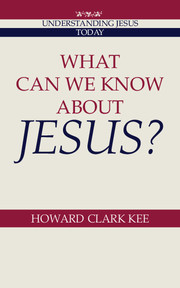Book contents
- Frontmatter
- Contents
- Introduction: Knowing Jesus and Knowing about Jesus
- 1 What Can We Learn from Sources Outside the New Testament?
- 2 What Can We Learn from Early Christian Writings Outside the Gospels?
- 3 What Can We Learn from the Oldest Gospel Source?
- 4 What Can We Learn from Our Oldest Gospel?
- 5 What Can We Learn from the Other Gospels?
- Conclusion
- Questions for Exploration
- Suggestions for Further Reading
- Index
- Frontmatter
- Contents
- Introduction: Knowing Jesus and Knowing about Jesus
- 1 What Can We Learn from Sources Outside the New Testament?
- 2 What Can We Learn from Early Christian Writings Outside the Gospels?
- 3 What Can We Learn from the Oldest Gospel Source?
- 4 What Can We Learn from Our Oldest Gospel?
- 5 What Can We Learn from the Other Gospels?
- Conclusion
- Questions for Exploration
- Suggestions for Further Reading
- Index
Summary
What does this survey of the evidence tell us that we can know about Jesus? A great deal!
First, we see that the issues with which he was dealing and that led to his rejection by the religious authorities were precisely those questions and concerns that were central for the various Jewish groups that were contemporary with him. Chief among these were three questions: (1) What are the qualifications for membership in God's Covenant people? (2) How does one maintain status within that people? (3) Who is the agent of God through whom this renewal will take place? Instead of the ritual and ethnic requirements considered essential by groups that differed among themselves – the priests and Sadducees, the Essenes and the Pharisees – Jesus invited into the fellowship of his followers all who were willing to acknowledge their need of God's grace and to see Jesus as God's instrument for the renewal of the Covenant. Thus, from the beginning of his activity, those who were ruled to be outsiders by the religious standards of his Jewish contemporaries he declared to be forgiven, healed, and accepted by God.
This role clearly implied that he saw himself in a special relation to God. To describe this relation he and his followers used such terms as Messiah, Son of God, and Son of Man; yet they did so in ways that were based not on his fulfillment of but his transformation of the royal and priestly functions in keeping with the history and the expectations of Israel.
- Type
- Chapter
- Information
- What Can We Know about Jesus? , pp. 105 - 109Publisher: Cambridge University PressPrint publication year: 1990



